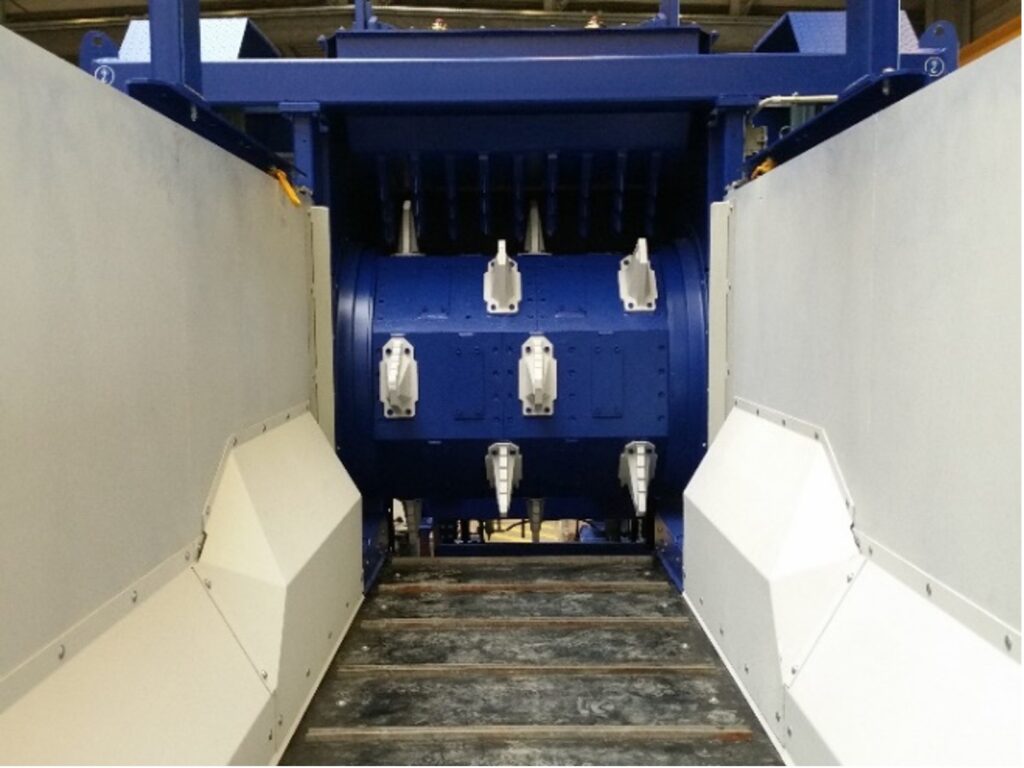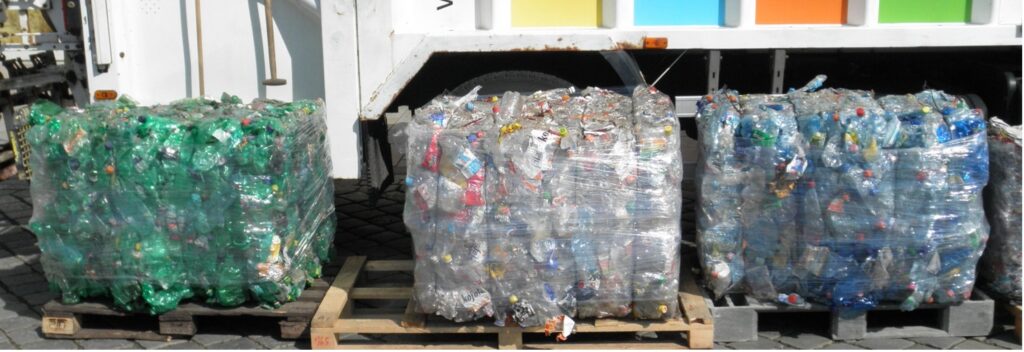Matthiessen Lagertechnik GmbH has been synonymous with innovative and efficient recycling technologies for over 30 years.
The responsible use of our planet’s resources is the basis of our actions. We endeavor to achieve the greatest possible efficiency with the lowest possible use of energy. We have been able to fulfill this challenge by continuously improving and developing our machines. Our experience from over 600 references in the field of waste processing and sorting is incorporated here.
In order to transport recyclable materials economically over long distances after the first processing stage, they are pressed into bales. These bales need to be broken up after transport in order to feed the recyclable materials to the subsequent processing stages. An optimized overall process is only guaranteed if errors are avoided at the start of the processing chain.
The BAIII bale breaker developed by Matthiessen enables cost-effective processing of recyclable materials and an optimum start for the subsequent work processes. With maximum reliability and robustness, our bale breaker breaks up bale products of different types and feeds the material to the subsequent processing steps in a dosed manner. This enables an efficient and high recycling rate to be achieved.
Matthiessen meets the task of breaking up bales with 2 different machine types:
For breaking up bales that have already been unwrapped/freed from stretch film wrapping::
- Suitable for a wide variety of feed materials, mixed plastics, paper, etc.
- Bale breaker BAIII / BAIV, width depending on the required throughput
- Feeding of bales via conveyor belt, forklift, gripper, wheel loader
INFO: Every standard Matthiessen storage technology bag breaker can also be used to break up bales that have already been unwrapped and freed from film (2 in 1 machine for flexible processing).
For breaking up bales that are still twisted – parallel but also cross-twisted bales
- Suitable for all finer products, PET bottles, plastic cups, etc.
- Bale Breaker BAIII-DD – with a working width of 1.250 mm.
- Bales are fed via open side or rear wall using a forklift with bale clamp (for example)


The BAIII-DD is equipped with two 15 kW geared motors on the rotor. The resulting higher drive power of the rotor and the specially designed tines make manual dewiring of the bales superfluous. The efficiency of the entire system is increased and the dangerous work step of manually removing the wires is no longer necessary!
The rotor tines break up the wires. The wires are not shredded and are thrown over the rotor onto the downstream conveyor belt. The wires can then be separated from the loosened material flow using overbelt magnets provided by the customer. This machine variant effectively offers 3 machines in one: dewiring, dissolving and dosing.
Both Bale Breaker variants can be customized to your requirements thanks to their modular design.
All Matthiessen machines are characterized by their robustness and high availability. They are also easy to replace with spare parts and have low energy consumption. Depending on the machine version, working width and type of bale, the feeding capacity is up to 30 t/h. Various rotor-counter comb variants, adapted to the task at hand, enable excellent loosening and dosing results. And all this with an energy consumption of less than 35 kWh!

























